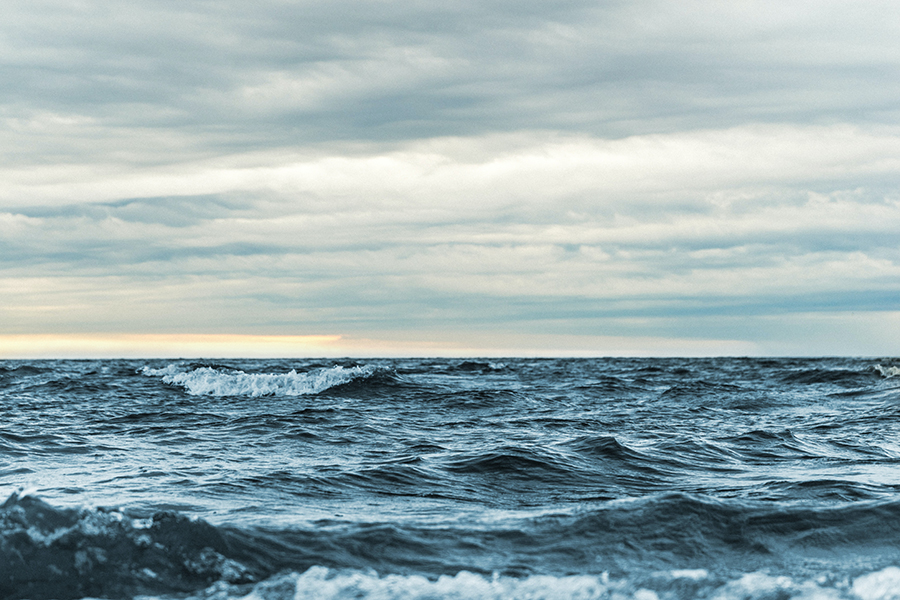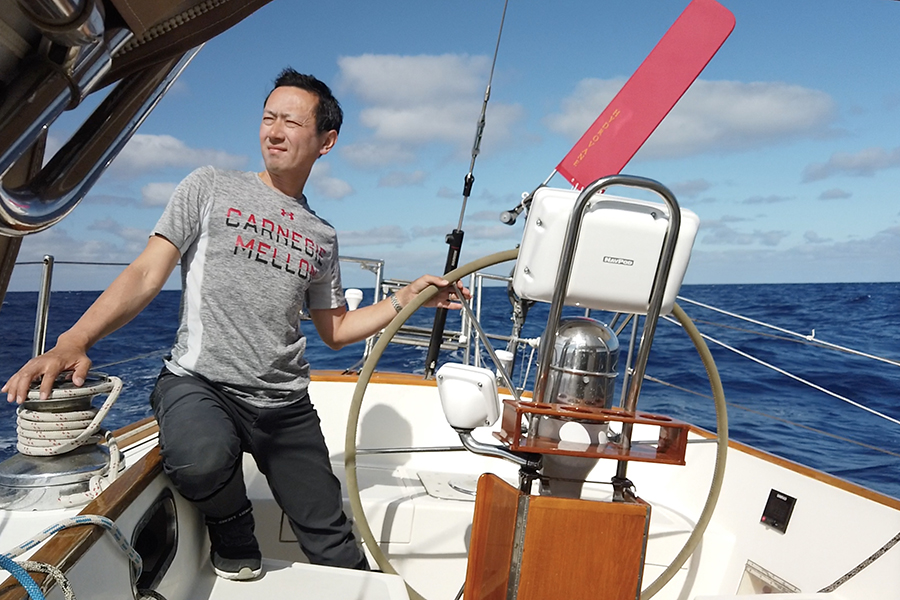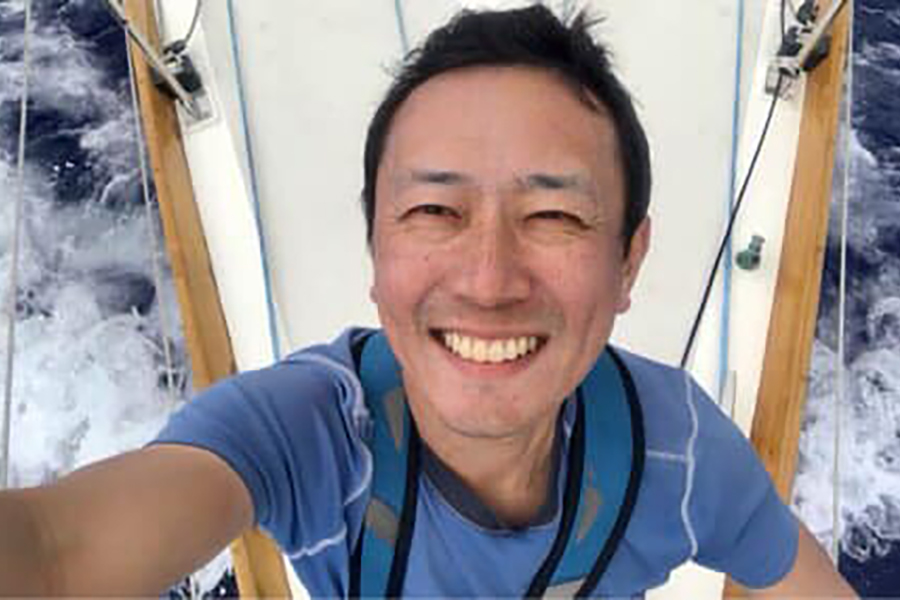
Engineer, Entrepreneur, Investor, Sailor
By Hannah Diorio-Toth
Internships are an eye-opening experience for many Carnegie Mellon University students. They can spark interest in a career path and build professional relationships that last a lifetime. For ECE alumnus Will Lee (’94), his sophomore year internship helped him discover something a little more unexpected: a passion for sailing. Now, Lee has over 20 years of sailing experience that has taken him all over the world. He recently competed in the Singlehanded Transpacific Yacht Race (SHTP), where he sailed 2,200 miles—by himself.
As an intern at Motorola, Lee got the opportunity to go sailing in a small catamaran on Lake Michigan. It was at that moment that he fell in love with the sport and the feeling of freedom that came with being on the water. Although Lee knew that the sport was out of his reach as a student, he promised himself that one day he would call himself a sailor.
“Sailing gives you a sense that you can go anywhere, you are the master commander of your vessel and your soul. You can live aboard anywhere in the world from off-the-grid exotic South Pacific islands or historical villages in the Mediterranean Sea,” says Lee.
After graduating from Carnegie Mellon, Lee earned his master’s degree in computer science from Cornell University before beginning a career in software. A passionate technology entrepreneur turned investor, Lee went on to found several companies and serve on the board of many others. However, it wasn’t until he sold his first company (about ten years after his first sailing experience) that he was able to shift his focus back to the open water. Lee spent two years sailing full time, learning everything he needed to know to sail solo. This meant juggling sailing, navigating, trouble-shooting, cooking, purifying water, and sleeping on his own.
Lee put his solo sailing skills to the test this year when he spent 18 days sailing from San Francisco to Hanalei Bay, Hawaii as part of the SHTP. The race only included 11 vessels, placing Lee among an elite group of sailors. In fact, the SHTP boasts that “more people have made it to outer space than have raced single-handed from San Francisco to Hawaii.”
“For me, the race is the culmination of everything I learned as a human being, including leveraging the problem-solving skills from my Carnegie Mellon engineering and computer science education,” says Lee.
Lee sees many similarities between his time on his boat, Sea Wisdom, and his undergraduate days. During both, he was challenged to push himself further than he realized he was capable. For example, he remembers working with a group of classmates to build a microprocessor in one of his ECE classes. Because creating software came much easier to Lee than building hardware, he was intimidated by the project and didn’t know that they would succeed. He remains so proud of tackling this challenge that he still has the microprocessor framed in his office.
“I have to attribute a lot of the confidence and determination I have to CMU. They were throwing us problems and when I saw those problem sets, I thought, ‘That's impossible. How am I going to do this?’ And then a week later I realized, ‘Oh, you know what? I solved it.’”
Lee says that confidence is about believing that you can achieve a dream. For him, this meant pushing through an engineering degree despite financial hardships, creating and investing in companies even in different fields, and sailing solo regardless of the challenges. When Lee looks back on these experiences, he says he reached his goals because, “well, I was foolish enough to think that I could do it.”
Lee credits much of his success to those that helped him along the way. At Carnegie Mellon, he relied heavily on financial aid and sometimes found himself struggling with paying for basic necessities like food. He is thankful for the kindness of the financial aid office and a particular piece of advice they gave him: remember his experience and when he had the means, give back to Carnegie Mellon students.
Lee has heeded that advice and he is a generous donor and volunteer at the university. He and his wife Chloe created a fund to support student-initiated undergraduate research at Carnegie Mellon. Most of all, Lee enjoys talking with students and young alumni about their dreams. “Carnegie Mellon students can really do anything. After an education from CMU, they don't have to be afraid to start a company, be a professor, or do the best in their field.”
Lee is looking forward to experiencing his alma mater through a new lens: parent. His daughter Colette is starting her first year as a student in the Mellon College of Science.

